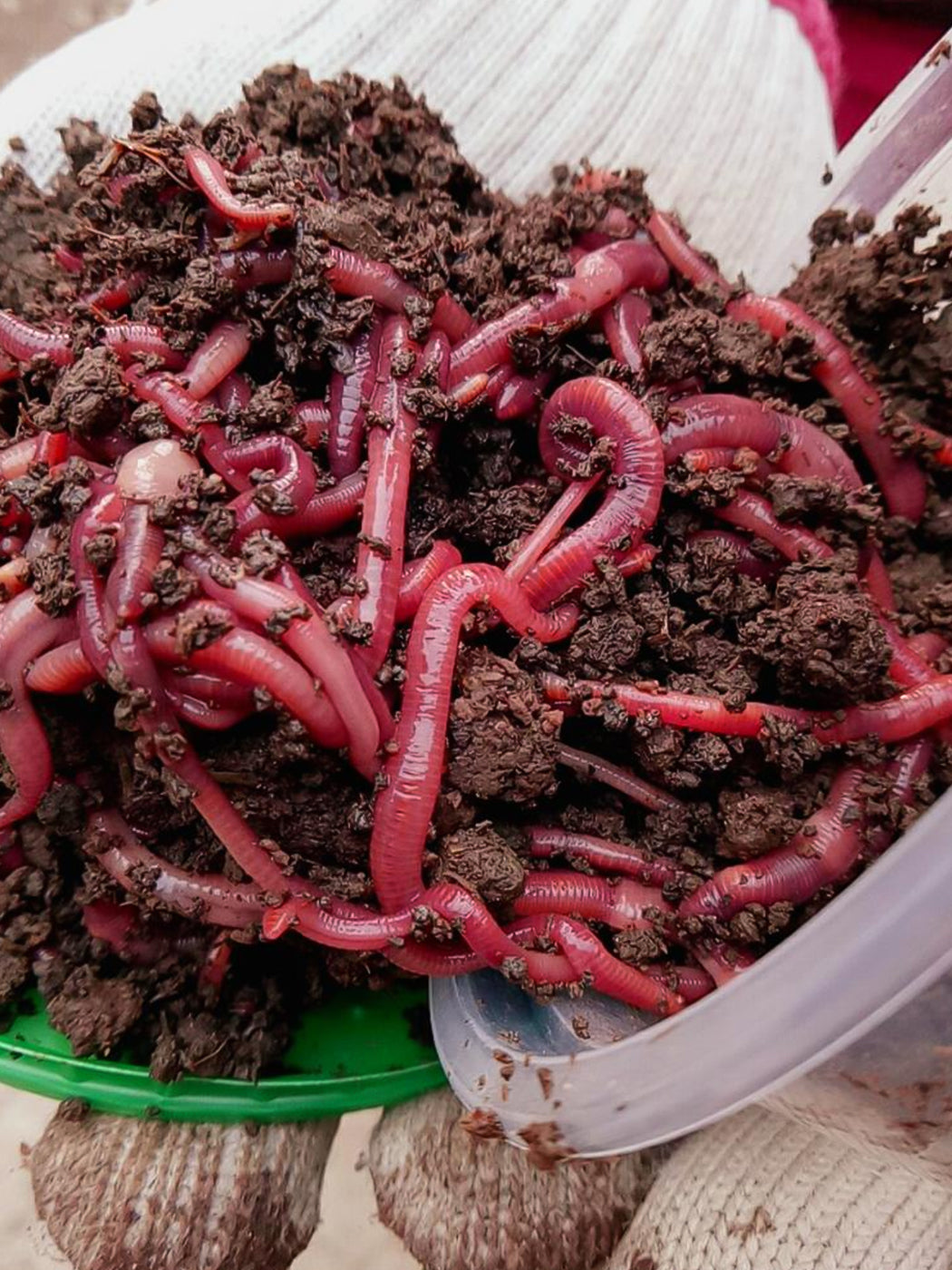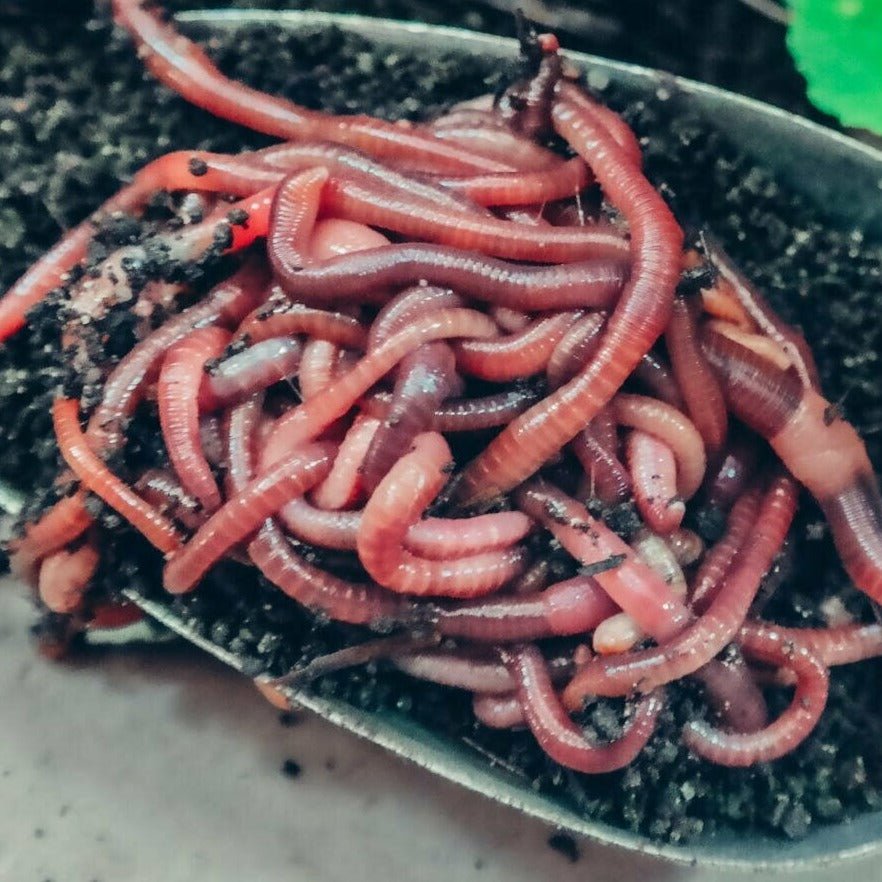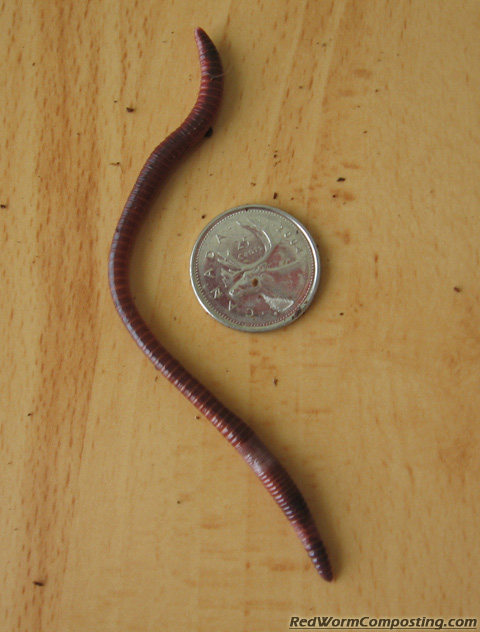Why Choose Red Wiggler Express for Reliable and Affordable Fishing Bait?
Wiki Article
Unlock the Secrets of Red Wigglers: Your Overview to Composting Success
The integration of red wigglers right into composting methods provides a significant possibility for boosting dirt health and advertising sustainability. Recognizing their demands and habits is vital for optimizing their potential, from setting up an appropriate worm container to feeding them the ideal materials.
What Are Red Wigglers?
(Red Wiggler Express)Red wigglers, medically understood as Eisenia fetida, are a species of earthworm primarily used in composting due to their impressive capacity to decompose raw material successfully. These worms are characterized by their reddish-brown coloration and a fractional body, normally gauging between 3 to 4 inches in length. Unlike various other earthworm varieties, red wigglers flourish in rich, organic atmospheres, making them excellent for vermicomposting systems.Belonging To North America, they are typically found in rotting fallen leaves and compost heap, where they play an essential function in nutrient recycling. Their adjustment to staying in a moist, aerobic environment allows them to take in large amounts of natural waste, simplifying right into nutrient-rich castings that improve dirt health.
Red wigglers replicate quickly, with a single worm qualified of producing numerous cocoons each week, each containing multiple hatchlings. Comprehending the biology and actions of red wigglers is necessary for maximizing their capacity in composting applications.
Advantages of Making Use Of Red Wigglers
Taking advantage of the power of red wigglers in composting provides various advantages that improve dirt wellness and promote lasting waste management. These amazing organisms efficiently break down raw material, transforming cooking area scraps and yard waste right into nutrient-rich vermicompost. This ended up item is remarkably advantageous for plant growth, as it enhances dirt structure, increases moisture retention, and improves nutrient accessibility.
(Red Wiggler Express)Additionally, the visibility of red wigglers in your composting system can increase the composting procedure, creating high-grade compost in a fraction of the moment contrasted to typical approaches. The castings produced by these worms are also bursting with advantageous microorganisms that additionally improve the dirt ecological community.
Setting Up Your Worm Bin
Developing an efficient worm container is a simple procedure that can dramatically improve your composting efforts. Worm containers can be made from plastic storage space containers, wooden boxes, or readily offered worm containers.Following, prepare the bedding product, which offers as the worms' habitat. A mix of shredded paper, cardboard, and coconut coir functions well, offering a comfortable setting for the worms.

Feeding Your Red Wigglers
To make sure the wellness and performance of your red wigglers, it is essential to give them with a balanced diet plan that satisfies their dietary demands. Red wigglers grow on a varied range of natural materials, which not just provide needed nutrients but likewise advertise reliable composting.Beginning by integrating kitchen area scraps such as veggie peels, fruit cores, and coffee grounds. Avoid citrus fruits, onions, and garlic, as these can be damaging to worm health and wellness. Additionally, present shredded paper, cardboard, and completely dry fallen leaves to produce a well-aerated environment.
Feeding regularity should be checked; usually, worms can eat half their body weight in food weekly. It is important to avoid overfeeding, as excess food can bring about undesirable odors and bring in pests. An excellent practice is to include food in percentages, enabling worms to refine it before presenting a lot more.
Preserving dampness degrees is also important; the bed linens must be moist yet not soaked. Be certain to consistently examine the temperature and pH degrees of the container to ensure an optimal environment for your red wigglers, inevitably enhancing their composting effectiveness.
Harvesting and Using Garden Compost
A successful composting procedure with red wigglers culminates in the abundant, dark garden compost called vermicompost, which can dramatically enhance soil wellness and plant growth. Gathering this nutrient-dense product generally happens every three to six months, relying on the dimension of your system and the quantity of raw material being processed.
To gather, gently different the compost from the worms and any kind of undecomposed materials. One effective technique entails moving the materials of the bin to one side and adding fresh bed linen and food to the empty room, encouraging the worms to move. After a couple of days, the garden compost can be accumulated from the contrary side.
It is important to use vermicompost correctly to optimize its benefits. By incorporating vermicompost into your gardening routine, you not only recycle natural waste however likewise create a flourishing environment that sustains sustainable gardening methods.
Conclusion
In recap, red wigglers act as phenomenal allies in composting initiatives, transforming natural waste right into nutrient-rich vermicompost (Red Wiggler Express). Their special biological qualities and effective waste handling abilities contribute dramatically to lasting horticulture techniques. By recognizing the optimum conditions for their habitat, feeding demands, and garden compost harvesting techniques, garden enthusiasts can improve soil health and wellness and promote plant vitality. Embracing vermicomposting not just reduces landfill waste but additionally promotes a much more ecologically responsible method to gardening and source monitoring.Report this wiki page